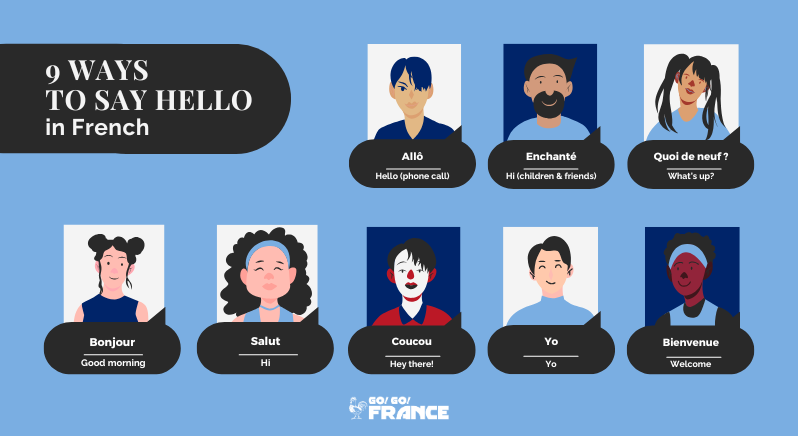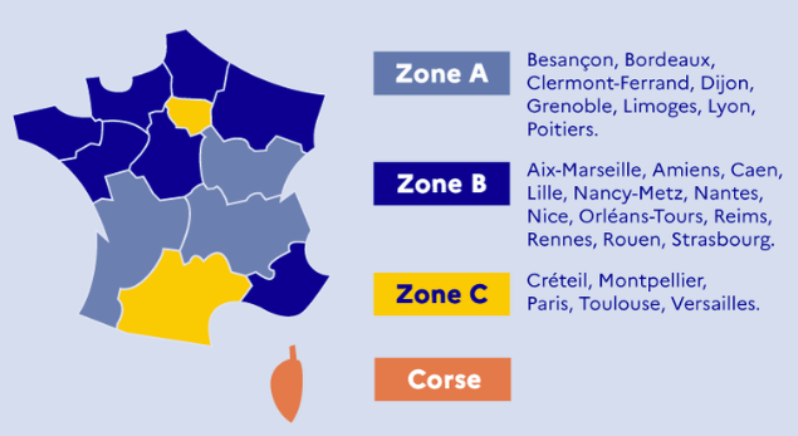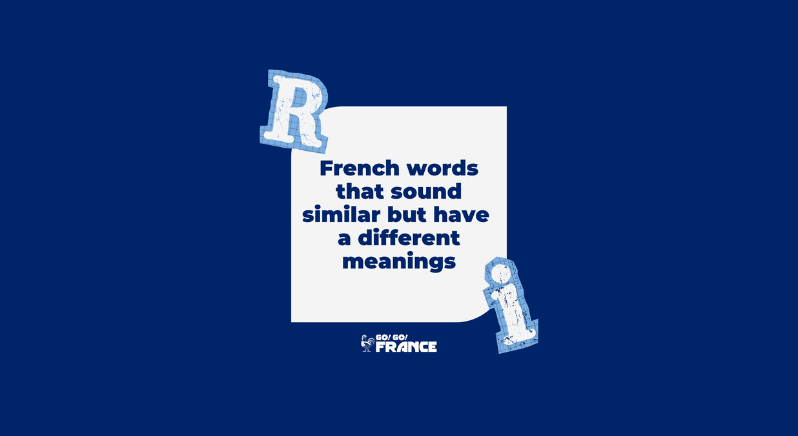Many international students with prior knowledge of French may quickly realize, once they set foot in France, that the French they learned in their home country’s classrooms doesn’t always match what they hear in daily conversations. This can lead to surprise and a sense of language barrier.
This blog will explore the differences between the French taught in a traditional school environment and the real life French spoken by locals, helping you navigate the nuances of the language and culture with ease.

Standard French
Learning French in your home country is a fantastic starting point for building a strong foundation in the language. Most of the time, foreign teachers focus on teaching the standardized version of French, with a curriculum that typically includes formal grammar, proper pronunciation, and essential vocabulary.
Here’s what you can expect when learning French in your home country:
- Grammar Rules: You’ll gain a solid understanding of tenses, conjugations, and sentence structures, which are crucial for clear communication.
- Pronunciation: Schools often emphasize neutral pronunciation, ensuring you speak French clearly and correctly.
- Vocabulary: You’ll build a comprehensive vocabulary, learning everything from everyday terms to more advanced expressions.
- Structured Conversations: The conversations you practice are usually polite and formal, reflecting professional or academic settings.
While these skills are essential, the French you learn in a classroom abroad can sometimes feel distant from the fast-paced, idiomatic language spoken in France.

Real Life French
When you arrive in France, you’ll quickly notice that real-life French can be quite different from the textbook version. Everyday French is dynamic, filled with slang, regional accents, and colloquial expressions. Here’s how it differs from what you might have learned at home:
- Slang (Argot): French slang is a staple of everyday conversations. Words like “boulot” (job), “fric” (money), and “bagnole” (car) are commonly used but rarely taught in traditional language courses abroad.
- Contractions and Fast Speech: Native French speakers often speak quickly and use contractions, making it challenging to follow every word. For example, “je ne sais pas” (I don’t know) becomes “j’sais pas” or even “chais pas” in spoken language.
- Regional Variations: The French language varies significantly across regions. In most regions of France, “crayon à papier” is the standard term for a pencil. However, regional variations exist, such as “crayon gris” (gray pencil) in parts of Northern France and Belgium, and “crayon de bois” (wooden pencil) in the South of France. These terms reflect local preferences for describing the common pencil.

Examples: Standard French vs. Real-Life French
To better illustrate the differences between standard French taught in schools and real-life French spoken in France, here’s a comparison table:
| Standard French | Real-Life French |
|---|---|
| Bonjour, comment allez-vous ? (Hello, how are you?) | Salut, ça va ? (Hi, how’s it going?) |
| Qu’est-ce que vous faites ce week-end ? (What are you doing this weekend?) | Tu fais quoi ce week-end ? (What are you up to this weekend?) |
| Je ne sais pas. (I don’t know.) | Je sais pas. / Chais pas. (I don’t know.) |
| Je ne peux pas venir. (I can’t come.) | J’peux pas venir. (I can’t come.) |
| Il n’y a pas de problème. (There is no problem.) | Y’a pas de problème. (No problem.) |
| Je suis fatigué. (I am tired.) | Je suis crevé. (I’m exhausted, slang.) |
| C’est ennuyeux. (It’s boring.) | C’est chiant. (It’s boring/annoying, informal/slang.) |

Learning French at a Language School in France
One of the best ways to bridge the gap between classroom French and real-life French is to learn the language in France. Attending a language school in France offers a more immersive experience and provides several key benefits:
- Immersion in the Language: When you’re surrounded by native speakers, you’re constantly exposed to real-life French. This immersion helps you quickly adapt to slang, contractions, and regional accents.
- Action-Oriented Approach: Language schools in France often have an action-oriented approach to teaching, focusing on practical language skills. This means you’ll learn how to navigate real-life situations, such as ordering in a café, asking for directions, essential medical terms or holding a casual conversation.
- Cultural Integration: In addition to language lessons, you’ll gain firsthand experience with French culture, customs, and social norms, which are integral to truly mastering the language.
- Faster Progress: Immersive learning environments tend to accelerate language acquisition. You’ll find that your listening and speaking skills improve more rapidly when you’re constantly interacting with native speakers.
If you want to learn more about language schools in France and discover how you can get FREE support to apply and study in France, contact us today.











